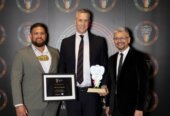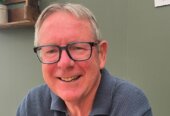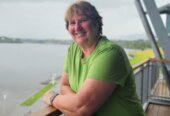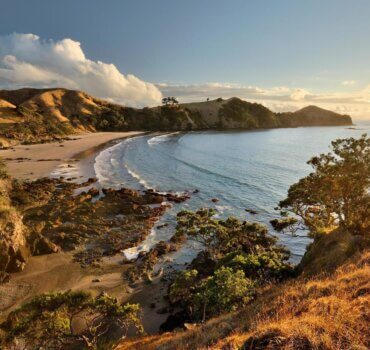
Great Barrier Island. Photo: Auckland Tourism
The fact New Zealand is blessed with such natural beauty struck me afresh recently while spending wonderful days cruising around Great Barrier Island (Aotea) and surrounding islands. Nearly 45 kilometres long, this 285 square kilometre treasure of the Hauraki Gulf is our sixth largest island.
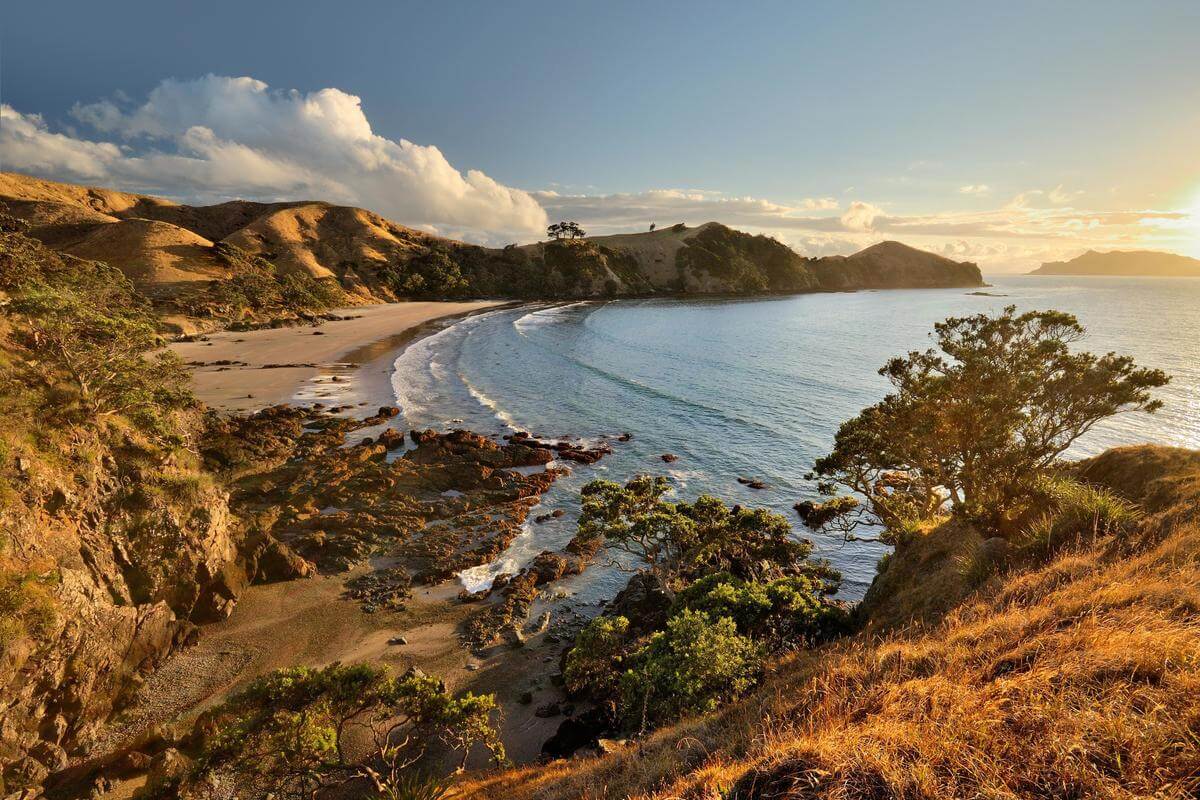
Great Barrier Island. Photo: Auckland Tourism
The island is well known for rich geographical diversity and majestic flora and fauna – less so, for its interesting history. Seeing and hearing beautiful birds, plus the abundant sea birds around coastal regions was delightful. Marine life flourishes with multiple fish species, sharks, rays, marlin, dolphins and whales.
The presence of nature’s wonders requires conclusions. Where did it all come from and what sustains it?
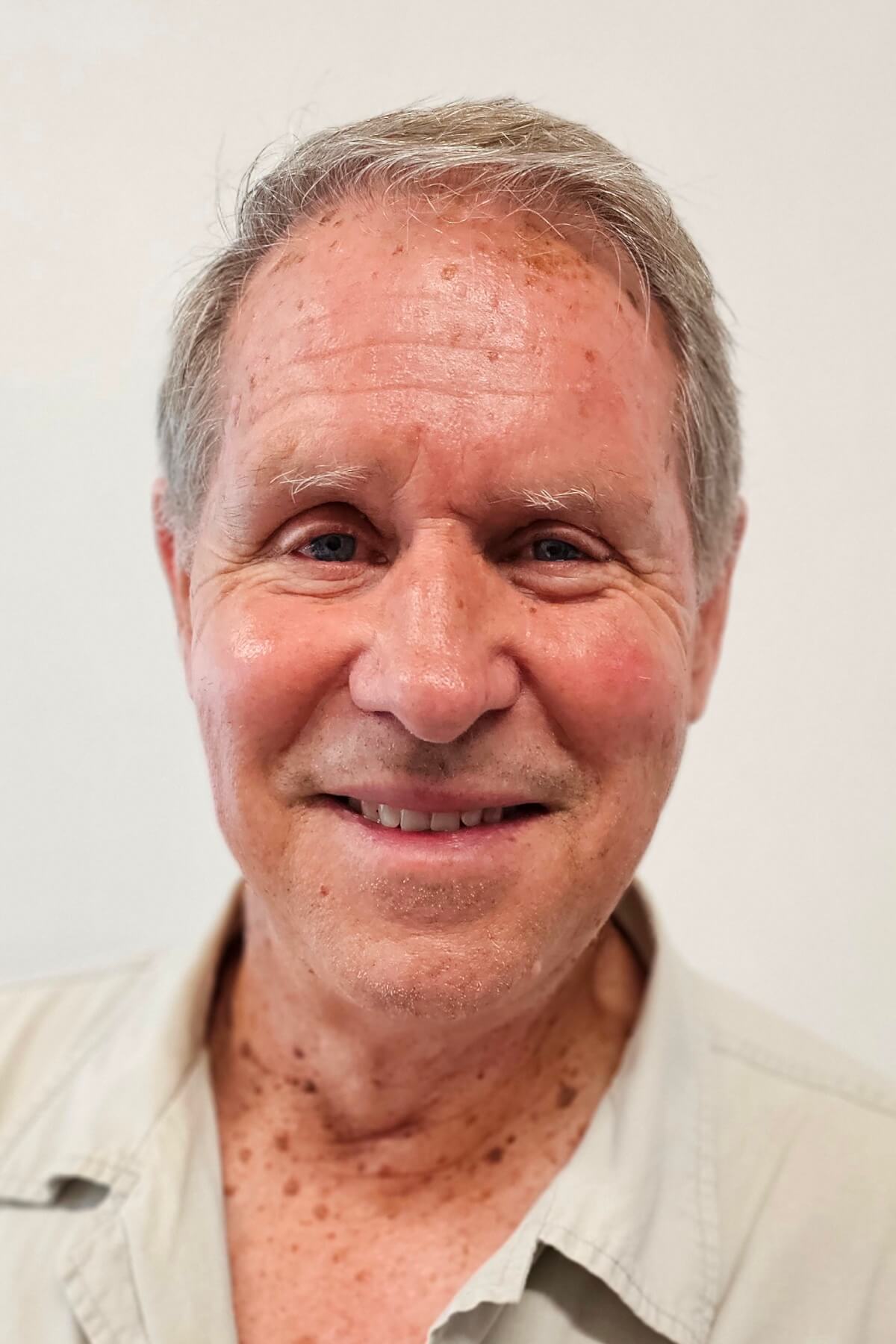
Murray Smith
Could everything just come from nothing? Creativity and design reveals a designer and intentionality – just as much as a painting points to a painter. A cornerstone belief of Christianity is the Bible’s assertion of Jesus Christ being God and the Creator of everything there is. It tells us, “…the visible things of creation, reveal those things which are invisible…” meaning, that in viewing creation, we gain insights into the nature of God.
Arguments are pitched to disprove Christianity, but flimsy objections based on prejudice, never undermine solid open-minded examination of facts.
An atheist claims that there is no God. An agnostic’s passive aggressive stance claims that on the basis of ‘lack of evidence’, you cannot prove God exists.
Those confident enough to state categorically, “there is no God!” make a bold claim since such an absolute statement pre-supposes knowing everything.
No human being has all knowledge. For example do you know how much gold there is in South Africa? Do you know the combined weight of the sand on all the beaches of Hawaii? Or how many hairs there are on the back of an adult male Tibetan yak?
It’s reasonable to conclude there’s much we don’t know. Thomas Edison said, “we do not know a millionth of one percent about anything”.
Let’s say you had an incredible 10 per cent of all the knowledge in the universe. Knowing 100 percent would mean knowing everything – there wouldn’t be a rock on earth you weren’t familiar with, or a fish in the most remote ocean whose daily life you weren’t acquainted with.
You would know everything in history – from that which is common, to trivial details such as how many fleas Napoleon’s cat had.
Ridiculous you say? No more so, than people being arrogant enough to confidently claim with the little bit of knowledge they have, that “there is no God” …although an abundance of contrary evidence presents, just in creation.
Many sceptically demand proof saying, “If I could just see the evidence, I’d probably believe”… but there’s a heart issue at play here and even though abounding plausible evidence exists for God, dimmed eyes make a choice not to see…for the same reasons a thief cannot find a policeman.
Connecting the dots requires an element of faith to acknowledge not only our flawed conclusions but our flawed lives too. I must first believe… in order to ‘see’.
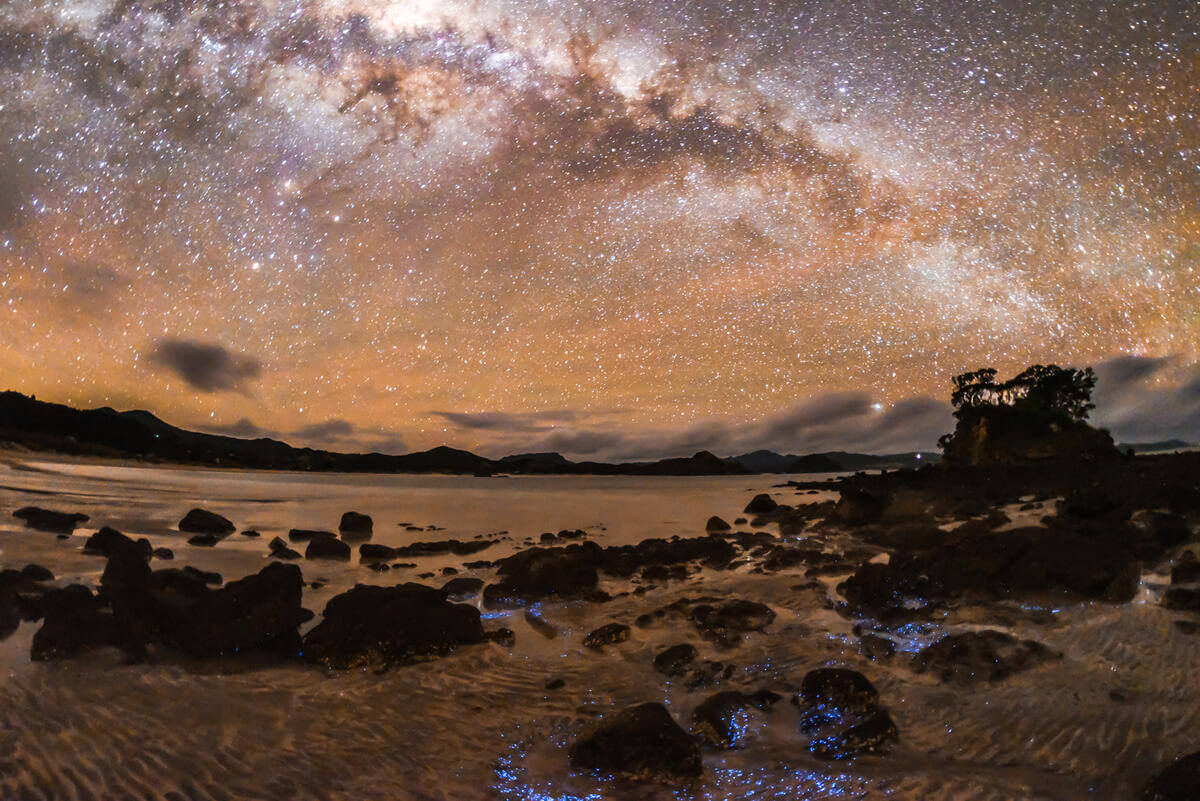
Great Barrier Island – Dark Sky – Photo: Auckland Tourism




